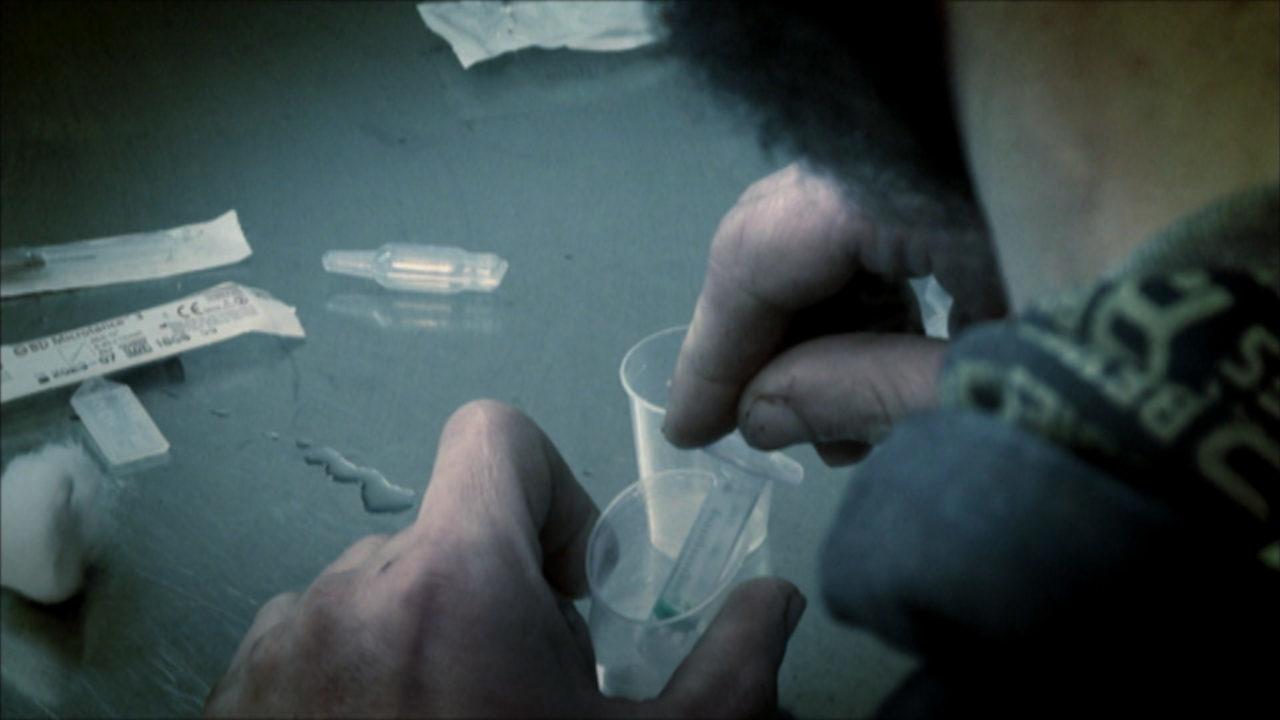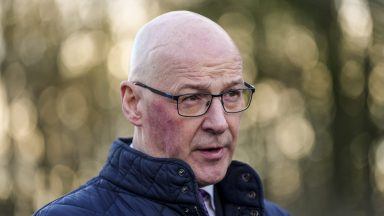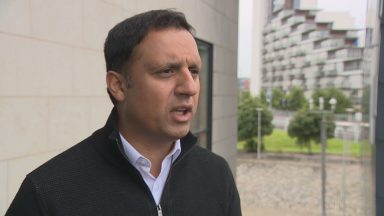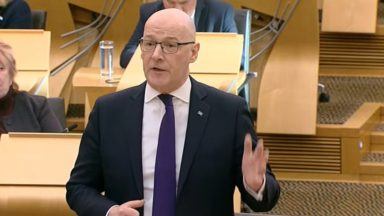A Home Office minister has effectively ruled out allowing a safe drug consumption room (DCR) to be set up in Glasgow as the UK Government hosts a drug deaths summit in the city.
Kit Malthouse branded plans for a safe injecting facility to reduce deaths from heroin overdoses a “distraction” and one that is proposed as a “silver bullet solution”.
With drug laws reserved to Westminster, the Home Office has repeatedly blocked Scottish Government and council officials from pursuing the project.
The summit at Glasgow’s SEC on Thursday is the second in two days, following a meeting on the same topic, at the same venue, hosted by Scottish ministers the day before.
There, Glasgow City Council leader Susan Aitken told delegates on Wednesday a DCR should be set up to arrest the “unprecedented spike” in drug deaths.
The city accounted for around a third of Scotland’s 1187 drug deaths in 2018 – among Europe’s highest and the most in the UK – something Aitken said needed an “emergency response”.
But opening Thursday’s conference, Malthouse said evidence of the concept working in other countries is “mixed”.
He said: “There are two issues with DCRs – first we cannot pretend they’re not legally very difficult.
“They involve the commission of several types of crime and the tolerance therefore of those crimes and that presents us with a legal and legislative difficulty.
“Secondly, the evidence around the world is mixed – most of the studies are broadly to areas where they’ve been used and even the most successful ones affect quite small numbers of people.”
The UK crime minister added: “I am concerned that it is a distraction from the main event, which is fundamentally there needs to be more concentration and resource on innovative and different kinds of treatments and that making sure we deal with underlying and complex health concerns is critical.
‘Given the scale of the deaths we need scalable solutions. In some parts of the country like Dundee, for example, I’m not sure a DCR would necessarily be appropriate – so what are we going to do for Dundee?’
Kit Malthouse, UK crime minister
“It’s part of the debate. There’s a difference between thinking about the debate and pulling from it what you think you can do and people having different views.
“Given the scale of the deaths we need scalable solutions. In some parts of the country like Dundee, for example, I’m not sure a DCR would necessarily be appropriate – so what are we going to do for Dundee?”
By council area, Dundee City Council has the highest number of drug deaths per head of population over the last four years of figures.
Malthouse said he could not remember a time when drugs were “so profoundly behind the many social problems we face as a country”.
But he expressed hope the summit would be the start of ongoing cooperation on the issue of drug deaths, calling a cross-border policing round-table between English forces and Police Scotland to tackle the drug trade’s “business model”.
Malthouse went on: “We’re running at the moment in England pilots in Merseyside, the West Midlands and London which are showing some success.
“I’m quite keen to stimulate activity between the two and I’m hoping that Humza (Yousaf) will agree to a joint round-table so we can put the two or whatever it is forces together and talk more about what we can do – particularly around somewhere like Dundee which is a discreet community that’s got an acute problem.”
Yousaf, the Scottish justice secretary, may also be involved in another summit due to happen next month.
It comes as the Scottish Government an extra £20m of funding to tackle drug deaths to coincide with the summits, on top of the £7.3m already set aside for the issue in the draft Budget.
The cash will help deliver the recommendations of the drug deaths task force, provide investment for mental health support and allow officials to consider adding more NHS-funded drug rehab beds.
Public health minister Joe FitzPatrick said: “The UK Government has made it clear at their summit that they are not willing to consider the bold, innovative approaches to this problem that I feel are needed.
“However, that doesn’t mean we will stop fighting for what we believe is right and this extra investment will help us in our efforts to save lives.”
Representatives from addiction charity FAVOR (Faces & Voices of Recovery) UK protested outside the summit venue with a banner of their campaign slogan: “You keep talking we keep dying.”
Annemarie Ward, from the charity, told STV News: “It just feels like we’re having reviews about reviews and talking shops.
“No one’s actually doing anything to change the situation or to help people who are dying.”
She added: “Both events have raised the debate and that’s a positive thing, but it’s not enough.”
Follow STV News on WhatsApp
Scan the QR code on your mobile device for all the latest news from around the country


 STV News
STV News


























